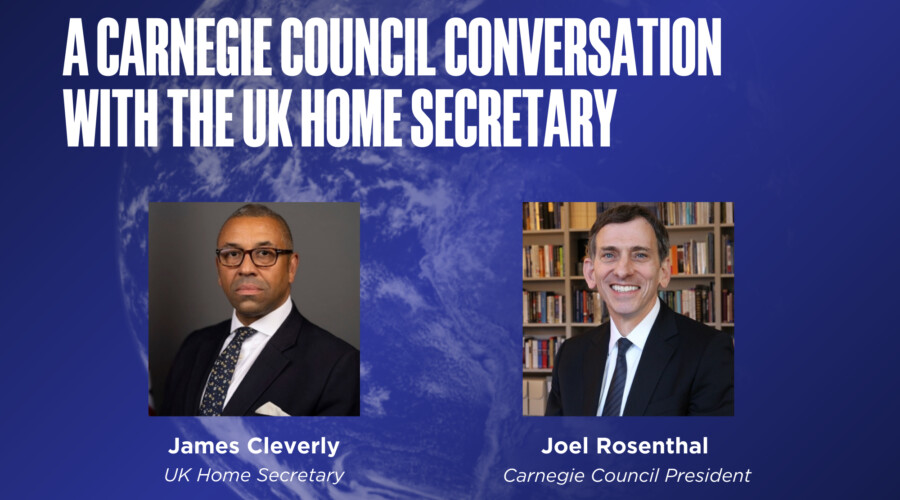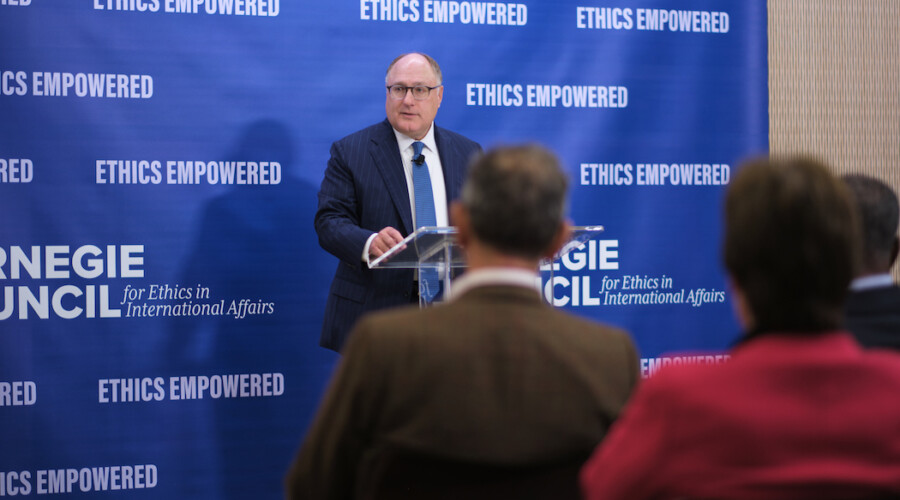Ilari Aula is a recent MSc. global politics graduate from the London School of Economics, currently pursuing a second master's degree at the University of Helsinki.
Essay Topic: In your opinion, what is the greatest ethical challenge or dilemma facing the planet?
Saving the World Is Indifferent, Acting for it Isn't
Let us start with a disappointment. Elevating a single issue among miseries such as global poverty, climate change, financial crisis and nuclear arms race as supreme hardly does justice to their interconnected nature. They all overlap too much; none can be singled out.
A way to face this Gordian knot of global challenges strangling the 21st century is offered to us in a story by Jean Giono. The story does not tell us how to resolve the miseries. It helps us reach and maintain an attitude of resolving them. For a citizen of a rich country used to a comfortable life and prone to indifference, maintaining such an attitude can be called a challenge in itself.
The story takes plan in pre-war Provence, France, where a traveller walks through an arid, barren valley. During his journey, he meets a shepherd who is determined to bring plants and trees back to the valley where signs of life disappeared decades ago.
The shepherd plants a hundred acorns every day. He has been planting them for many years and, as the story reveals, keeps on planting them until his death in the 1970's. The valley, previously barren and inhabited by a mere handful of miserable families, comes to blossom by his hand.
The shepherd finds his inner peace and satisfaction to life through a project so overwhelming that it appears hopeless and impossible for most of us. However, his is the perspective we need in our projects of world-saving. We need to understand that a happy life consists of such long-term projects.
Just as the shepherd has a valley to revive, we need to cultivate a similar source of motivation to our world-saving efforts. Our acorns might just as well be the days we spend teaching children from poor backgrounds. Or they can be our monthly donation to a group empowering women. Or the time we use to ensure that the cellphone we are about to purchase does not contain conflict minerals.
Some of these efforts, maybe most of them, are likely to be in vain. Children are taken out of school by parents; money given flows to corrupt officials; that cellphone might not contain cobolt from the Congo but is assembled by children in China, instead. Yet, tangible, immediate results are not as important as us acknowledging that grand projects of world-saving are necessary for us to live happily.
Now, if not earlier, come the first unruly shouts, demanding us to focus on concrete results instead of our own well-being. They accuse the attitude portrayed here as a pseudo-Zen attitude of sorts, which only grants us a moral loophole to keep on doing things with which we are comfortable. Focusing on our own happiness is not ethical—helping others is.
This scepticism is understandable, but underestimates how actual it is to revise our attitude to facing global challenges. For the last few years, an economic downfall has returned our attention to narrower spheres of ethical thinking, from global issues to national and local problems. Such crises only lure us back to using well-worn lines disempowering individuals, such as:
'Individuals cannot do much to stop climate change.'
'Volunteering to teach children doesn't make the educational system in India any better.'
'Hunger is won through removing trade barriers, not by donating one's pocket-money to Oxfam.'
Such anecdotes playing down the potential role of an individual in facing global challenges are commonly heard in the West. They are popular for a reason. It is hard to come up with unquestionable evidence that our ethical donations or purchases really help against miseries such as tyrannies or poverty.
That is why, when we focus on results, citizens of rich countries are able to explain their inaction through our lack of clarity:
'Throwing a bucketful of water to a forest fire hardly makes a difference.'
'Actually, pulling only from one end of the Gordian knot might just make the knot tighter.'
Global issues remain interconnected, distant and difficult to resolve, and one can reasonably doubt whether there will ever be a wide agreement on the best ways to tackle them.
This makes it unlikely that a white-collar worker in Finland, ever as resourceful in finding ways to excuse herself from doing something not beneficial to herself, will ever get involved.
That is why we should not talk about results. That is why people need to recognise that facing these challenges is directly related to our own happiness. The greatest ethical challenge facing the planet is to spread a culture of individualism that celebrates engagement instead of results, and embraces projects of world-saving surpassing our own lifetime.
How to do this is harder. To start, citizens, especially those in the democratic West, need to awaken to their own power to make an impact. Enjoying a head-start in purchasing power, education level and influence over their elected leaders, it is hard to argue that their relative potential to act is much higher than that of many others.
More importantly, our societies need public campaigns that depict projects of worldsaving as respected and desirable behaviour. We do not need to lead a solitary life as the shepherd did. For the vast majority of us, engaging in projects of world-saving is easier when doing so includes social prestige and acceptance, not hermitage or accusations of being a utopian fool.
But to really bring in the shepherd's lesson, we need to stop arguing about the best way to engage with global issues. Be it a career choice or a purchase of a sustainable product, just taking part needs to be enough. What matters is that instead of seeing it as an unpleasant act or a duty, we need to be attuned to see our own good realised through projects of world-saving.
To be sure, this is not a call for a religious awakening, in which a reward in the next life motivates our grand projects. Great religions have indeed inspired people to lead lives devoted to some grand purpose. But to resonate across religions and with the secular, materialist sentiments in many countries, the answer is not to call for any specific vision of afterlife.
This is a proposal that sees acting for a sea change in social norms guiding our self-interest as more crucial than refining our technologies of tackling global issues. There is a gap that we perceive between acting for our own happiness and tackling miseries hindering everyone's ability to reach and maintain happiness. Bridging this gap precedes other things.
To use one more analogy, regardless of whether a group of helpers were given to the shepherd, and acorns he planted, often in danger of being eaten by rodents, were given 24/7 surveillance by rangers, and to make it perfect, fertilisers spread to the young forest, the valley would still be revived. The shepherd's motivation, not the amount of support he has, is the real primus motor of the change.
From this perspective, international institutions bringing resources together, technology helping our efforts and researchers increasing our knowledge are very important, but only as channels for our new-found attitude to world-saving. We come not to act because of results rather than because of the self-satisfying, intrinsically rewarding nature of acting itself.
Making our efforts something that matters, something consequential is a task for economists, development experts and others with a perspective over the systemic nature of global issues. But for the rest of us, a change in how we perceive our reward is the most substantial change needed.
This is all said before, and a long time ago. Branding world-saving 'cool' by waving a flag of happiness is definitely harder in reality than on paper. But do not all of our projects, be it planting trees or organising a seminar on alternative economics, already contain a seed of such thinking?
Our eyes are not constantly fixed on creating a forest or an dismantling financial institutions. Encouraged by our peers and our feeling of doing the right thing, we feel satisfaction and acceptance in the act itself. This is the feeling that needs to be grasped, cultivated and strengthened on a social scale.
The greatest ethical challenge facing the planet is to discover how we ordinary people reach and maintain the motivation to change the world. It is we, not the leaders, institutions or experts who play a critical role in bringing a momentum to a pro-poor trade regime, a CO2-neutral global line or a realizable nuclear disarmament plan.
Overcoming all these challenges facing our planet depends on starting a cultural movement; on spreading a mindset and cultivating norms that recognise how pursuing our own happiness equals to engaging in grand projects of world-saving that far outlive us. That is how forests are created.



